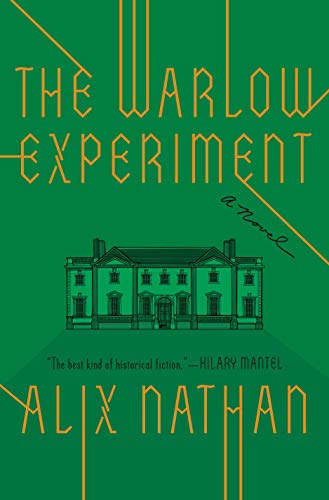The Warlow Experiment
Enlightenment ideas and desire for personal acclaim influence reclusive, wealthy landowner and amateur scientist Herbert Powyss. He plans an experiment. How would complete isolation from human contact affect a man’s mind? Powyss advertises for a volunteer: he will take responsibility for the man’s family and provide a generous annuity to him after the experiment – if he will agree to live in comfort in the basement of Powyss’s estate, forgoing all human contact for a period of seven years. Poor laborer John Warlow, abusive husband and father of six children, takes Powyss up on his offer.
This experiment will go awry, of course. People will be damaged. It is how things go off the rails that holds the reader’s interest, along with tragic characterization. There is much here in the way of class struggle. Powyss, as landed gentry, is so out of touch with the laboring classes that he thinks to have the drunken, semi-literate Warlow while away the years enjoying carefully selected art, chuckling over Candide, playing a chamber organ, and journaling insightful notes on his captivity that Powyss can present to the Royal Society with his findings. The other occupants of the estate, from clever maids to disaffected gardeners, are not variables Powyss has considered, but greatly impact his “experiment” – as does Warlow’s wife. The differing perspectives, especially Warlow’s and Powyss’s, offer illumination of the monumental class divide and the ignorance of all parties when it comes to anything outside their own experience. The novel is even more fascinating in that it is based upon truth: the author was inspired by an advertisement for just such a “volunteer” in the 1797 Annual Register. Enlightenment is a painful (occasionally deadly) process in this well-written novel that features a convincing sense of historical atmosphere.










